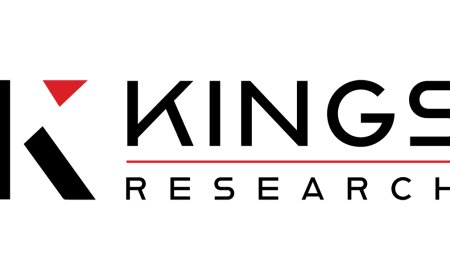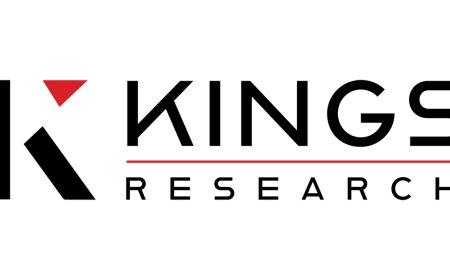How Azure Remote Desktop Services Support Financial Institutions with Secure Compliance
Azure Remote Desktop Services play a crucial role, offering a powerful platform to support financial institutions with secure compliance and operational efficiency.

Introduction
In todays fast-evolving financial sector, institutions face increasing demands to deliver secure, reliable, and compliant digital services. As remote work and cloud adoption continue to rise, financial organizations must ensure their IT infrastructure meets strict regulatory standards while providing seamless access to sensitive data and applications. This is where Azure Remote Desktop Services (Azure RDS) play a crucial role, offering a powerful platform to support financial institutions with secure compliance and operational efficiency.
The Compliance Challenge in Financial Services
Financial institutions, including banks, insurance companies, and investment firms, operate in a highly regulated environment. They must comply with multiple regulatory frameworks such as:
-
Gramm-Leach-Bliley Act (GLBA)
-
Sarbanes-Oxley Act (SOX)
-
Payment Card Industry Data Security Standard (PCI DSS)
-
General Data Protection Regulation (GDPR)
-
Federal Financial Institutions Examination Council (FFIEC) guidelines
These regulations require stringent data protection, auditing, and risk management processes. Failure to comply can lead to severe penalties, reputational damage, and loss of customer trust. Additionally, with financial data being a prime target for cybercriminals, ensuring security is paramount.
Why Financial Institutions Are Turning to Azure Remote Desktop Services
Traditional on-premises infrastructure poses significant challenges in maintaining compliance due to complex hardware management, patching, and monitoring requirements. Azure Remote Desktop Services offer a cloud-based alternative that simplifies secure access to corporate applications and data without compromising regulatory obligations.
Azure Remote Desktop Services allow financial institutions to:
-
Centralize desktop and application delivery within a controlled environment
-
Enforce consistent security policies across all user sessions
-
Reduce attack surface by limiting local data storage on user devices
-
Enable secure remote access without exposing the core network directly
This combination of centralized control and secure connectivity is critical for financial organizations striving to balance regulatory compliance with business agility.
Key Security Features of Azure Remote Desktop Services for Compliance
Azure RDS integrates several security capabilities tailored to meet compliance needs in the financial sector:
1. Data Encryption In Transit and At Rest
Azure Remote Desktop Services use Transport Layer Security (TLS) encryption to protect data between clients and Azure-hosted sessions. Financial data remains encrypted while transmitted, preventing interception by unauthorized parties.
Moreover, all stored data within Azure virtual machines is encrypted at rest using Azure Storage Service Encryption (SSE), ensuring sensitive customer information is safeguarded in compliance with data privacy regulations.
2. Multi-Factor Authentication (MFA)
To strengthen identity verification, Azure RDS can be integrated with Azure Active Directory (Azure AD) and enable Multi-Factor Authentication. This is essential for financial institutions to comply with regulatory requirements for strong authentication, reducing the risk of credential theft.
MFA ensures that only authorized users can access remote desktops, even if passwords are compromised, adding a critical layer of security.
3. Role-Based Access Control (RBAC)
Financial institutions require granular control over who can access specific applications and data. Azure RDS leverages Azure RBAC, allowing administrators to define permissions based on roles and responsibilities.
RBAC ensures that employees access only the resources necessary for their job functions, helping maintain the principle of least privilege a key compliance guideline.
4. Comprehensive Auditing and Monitoring
Regulatory compliance demands detailed logging of user activities and system changes. Azure RDS supports integration with Azure Monitor and Azure Security Center, providing real-time monitoring and audit trails.
These tools enable financial institutions to track user logins, session activity, and administrative actions, supporting forensic investigations and compliance reporting.
5. Compliance Certifications and Standards
Microsoft Azure complies with a broad range of international and industry-specific standards such as ISO/IEC 27001, SOC 1/2/3, PCI DSS, and FedRAMP. By hosting Remote Desktop Services on Azure, financial institutions benefit from Microsofts extensive compliance certifications, which significantly ease the burden of demonstrating regulatory adherence.
Enhancing Operational Efficiency and Security with Azure RDS
Besides compliance, Azure Remote Desktop Services bring operational advantages to financial institutions:
1. Centralized Application Management
Azure RDS allows IT teams to centrally manage financial applications and updates on cloud-hosted virtual machines. This eliminates the need for complex software deployments on individual employee devices, reducing vulnerabilities from outdated software.
Updates and security patches can be rolled out rapidly across the entire organization, ensuring compliance with security best practices.
2. Secure BYOD (Bring Your Own Device) Enablement
Financial institutions often allow employees to use personal devices for work, which can complicate data protection efforts. Azure RDS ensures sensitive data never resides on the endpoint device itself; it stays securely within the cloud session.
This enables secure BYOD adoption without compromising compliance, supporting remote and hybrid work models critical in todays financial landscape.
3. Business Continuity and Disaster Recovery
Financial institutions cannot afford downtime or data loss. Azure RDS, running on the globally distributed Azure cloud infrastructure, offers robust disaster recovery capabilities with geo-redundancy and automated backups.
This guarantees that remote desktop environments can be quickly restored or scaled up during emergencies, maintaining compliance with regulations requiring operational resilience.
Real-World Use Cases: Financial Institutions Leveraging Azure RDS
Several financial organizations have adopted Azure Remote Desktop Services to meet compliance requirements while improving productivity:
-
Global Bank: Implemented Azure RDS to provide secure remote trading platforms with end-to-end encryption and strict access controls, meeting FINRA and SEC regulations.
-
Insurance Company: Used Azure RDS for claims processing teams to access sensitive customer information remotely with MFA and continuous monitoring, ensuring HIPAA compliance.
-
Investment Firm: Centralized portfolio management applications in Azure RDS, applying RBAC and audit logging to satisfy SOX and GDPR data governance mandates.
These case studies illustrate how Azure RDS enables financial institutions to remain compliant while adapting to digital transformation demands.
Best Practices for Financial Institutions Using Azure Remote Desktop Services
To maximize the security and compliance benefits of Azure RDS, financial institutions should consider these best practices:
-
Implement Strong Identity and Access Management: Use Azure AD with conditional access policies and MFA to protect user credentials.
-
Adopt a Zero Trust Security Model: Continuously verify user and device trustworthiness before granting access.
-
Regularly Audit and Monitor Activity: Set up automated alerts for suspicious activities using Azure Security Center.
-
Encrypt Data End-to-End: Ensure both in-transit and at-rest encryption are configured.
-
Keep Systems Updated: Automate patch management for virtual desktops and underlying Azure infrastructure.
-
Train Employees on Security Awareness: Educate users on compliance policies and risks related to remote access.
Conclusion
In the complex regulatory environment of financial services, ensuring secure, compliant access to sensitive data and applications is non-negotiable. Azure Remote Desktop Services provide financial institutions with a robust, scalable, and secure solution that meets stringent compliance standards while supporting modern workforce needs.
By leveraging Azure RDSs advanced security features, centralized management, and Microsofts comprehensive compliance certifications, financial organizations can confidently embrace cloud-powered remote work without sacrificing security or regulatory adherence.
As financial institutions continue to innovate and digitize operations, Azure Remote Desktop Services will remain a foundational tool for secure compliance and operational excellence in the digital age.
































